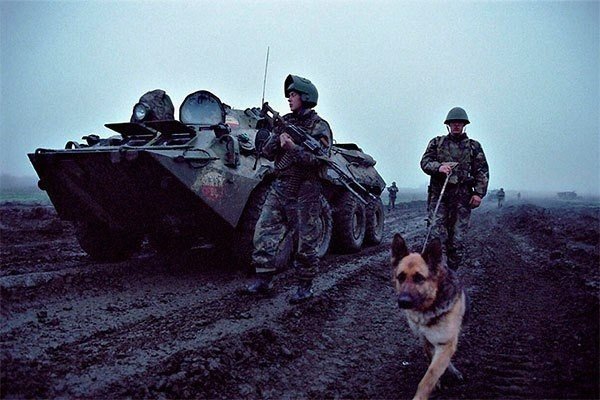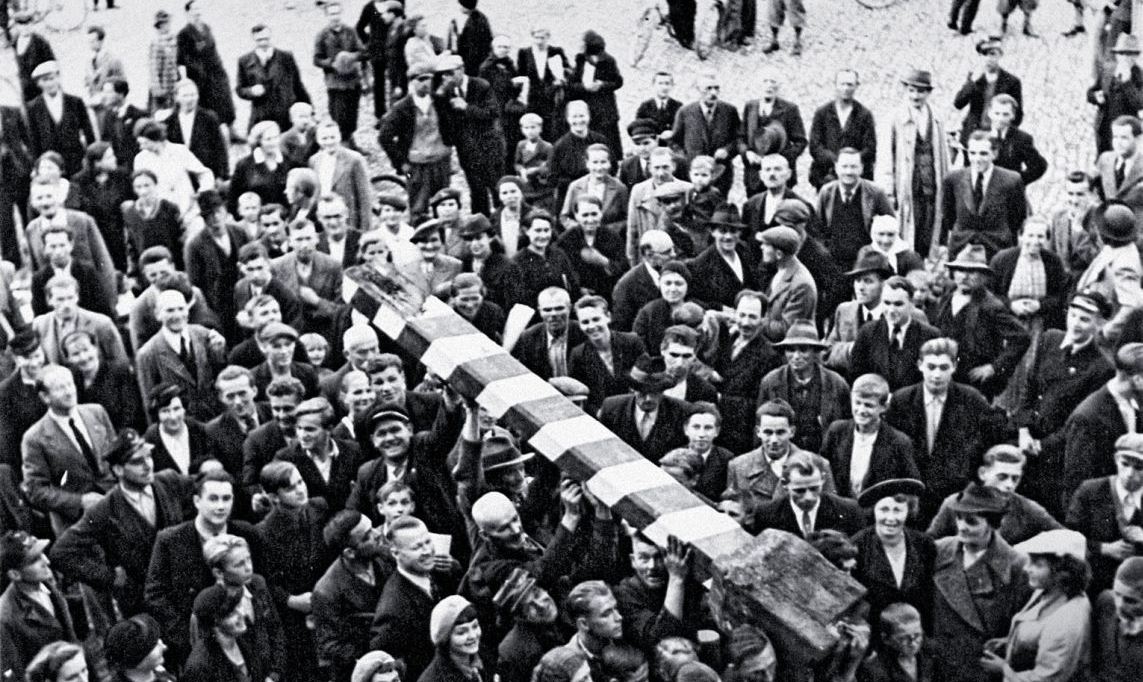
Czech Republic and Poland argue about Tesin again
Scheduled for March 2021 the year the census in the Czech Republic provoked a diplomatic scandal between Prague and Warsaw.
After publication on the portal TVP.info of the article “Betting on Polishness! In Saolzie (western part of Cieszyn Silesia. – row.) - mobilization before the spring census "with an appeal to the 39,000-strong Polish diaspora in the Czech Republic to indicate Polish nationality in the census, the Czech Foreign Ministry published a refutation of the article as containing numerous distortions of the history of Poland's occupation of Cieszyn Silesia in 1938 year.
TVP.info claims: Prague, taking advantage of the Soviet-Polish war, at 1919 g. captured Cieszyn Silesia, which since the 10th century belonged to the Polish kings and where at the time of its capture by the Czechoslovakians they lived 140 thousand. Poles, eager to reunite with their historical homeland. AT 1938 Prague allegedly voluntarily returned the Cieszyn region to Poland. In June 1945 The Polish Army was preparing to prevent the occupation of the region by the Czechoslovak army by force, but at the behest of Stalin, Warsaw was forced to abandon this plan, and the Cieszyn region became Czechoslovak again.
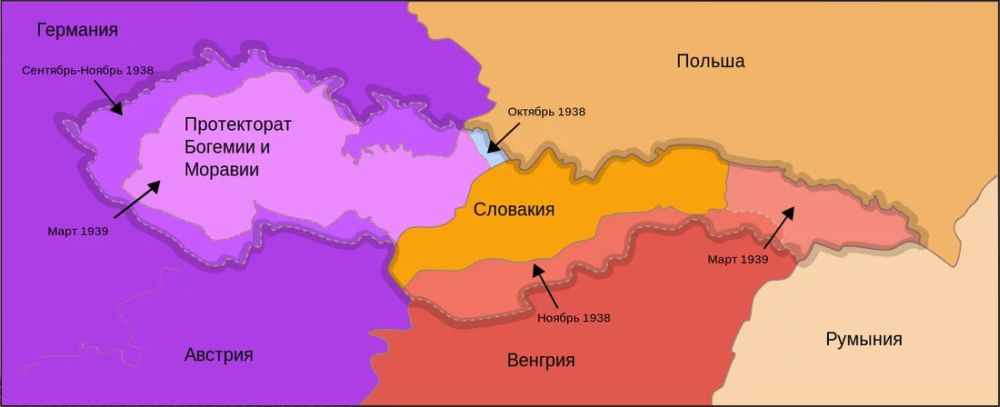
Czech Foreign Ministry retorts: Warsaw and Prague c 1918 g. agreed not to take independent action to change the border pending international consultations on this topic, but in 1919 g. Warsaw unilaterally announced on the territory of Cieszyn Silesia elections to the Sejm of Poland and conscription into the Polish army, and also brought in armed detachments there, forcing Prague to take countermeasures. No voluntary return of Teszyn to Poland in 1938 year was not, but there was a partition of Czechoslovakia by Poland and Nazi Germany.
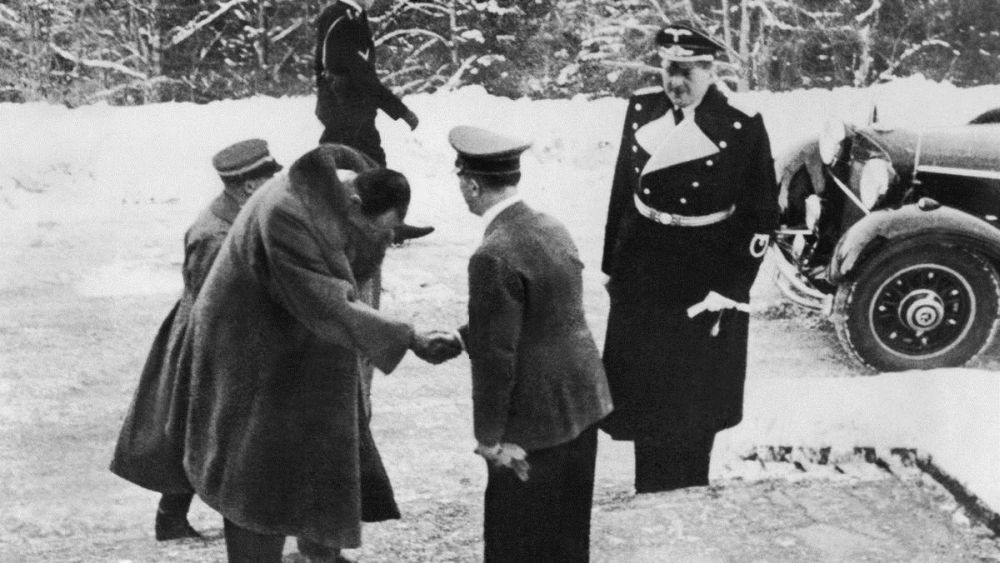
Polish Ambassador Lipski shakes hands with the Fuhrer
Poland's attack on Czechoslovakia was preceded by a meeting of the Polish ambassador to Germany, Józef Lipski, with Adolf Hitler. 20 September 1938 years Lipsky told the Fuhrer, that Warsaw four times rejected the proposal of Great Britain and France to contribute to a peaceful resolution of the current situation in Europe, and the Fuhrer promised to support Poland in the event of a conflict with Czechoslovakia.
The very next day, 21 September, Poland began to form the operational group of troops "Silesia" for the capture of Cieszyn. At the same time, calls from Warsaw to revise the border with Czechoslovakia sounded immediately after the signing of the Pilsudski-Hitler pact in 1934 g. All requests from Prague to resolve the issue peacefully Poland rejected.
Adolph Bochensky, Vladislav Gizbert-Studnitsky, Stanislaw Tsat-Mackiewicz - the three most influential geopolitics of pre-war Poland - launched an unbridled anti-Czech press campaign in the 1930s. Czechoslovakia was called a "random state", created contrary to history and geography; accused of, that by the very fact of its existence, Czechoslovakia does not allow Poland to have a common border with Germany's ally, Catholic Hungary, and can serve as a connecting link for a potential French-Soviet bloc, which reduces the chances of success of the Polish-German alliance.
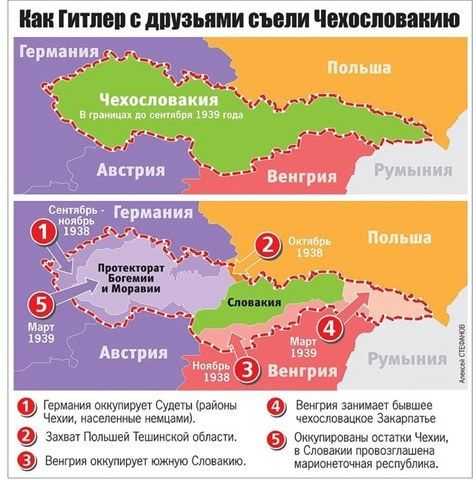
Polish authors proposed to preliminarily strangle Czechoslovakia with an economic blockade with the participation of another Hitler ally - Romania, so that the weakening of the Czechoslovak state would strengthen Polish influence in Romania, giving additional dynamism to Polish-Romanian cooperation in the area from the Baltic to the Black Sea.
Tsat-Matskevich openly admitted: the rapprochement of Poland with Germany allowed the Fuhrer to carry out the Anschluss of Austria and proceed to the partition of Czechoslovakia. According to Tsat-Matskevich, the rapid dismemberment of Czechoslovakia could have pushed Paris to an alliance with Berlin and Warsaw for the joint acquisition of colonial possessions on the territory of the Soviet Union.
In such unions, wrote Gizbert-Studnicki in the brochure "The Political System of Europe and Poland" (The political system of Europe and Poland), “France cannot be the cementing link in the consolidation of Europe, which betrayed Europe and betrayed the white race in favor of African blacks ... The role of such a center should go to the Germans with their investment industry and organizational talents ".
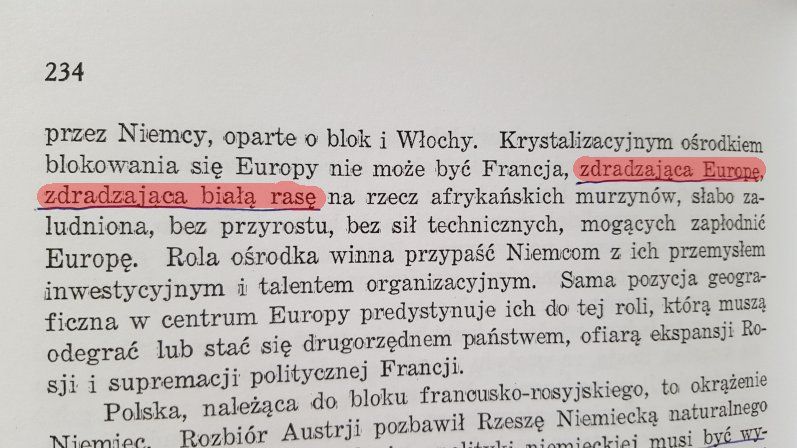
Gizbert-Studnitsky about France. From the brochure "Political System of Europe and Poland"
Warsaw believed, that the Polish state without expanding its territory will not be able to resist Germany, nor the Soviet Union. Moscow's proposals to conclude an anti-Nazi defense alliance, or at least allow Soviet troops to come to the aid of Czechoslovakia through Poland in the event of an attack by Germany, Warsaw swept aside immediately.
Poland intended to increase its territory at the expense of Czechoslovakia and the USSR. To prevent the Soviet Union from providing military assistance to the Czechoslovakians on the Polish-Soviet border during the invasion of Polish troops into the Cieszyn region, large-scale military exercises were conducted with the involvement of tanks, cavalry and aviation.
Participating in the partition of Czechoslovakia along with Hitler, Warsaw solved two problems at once: increased Polish territory by 1 thousand. quarter. km and, it seemed, removed the threat of a German attack on Poland. World War II showed, that the calculation to eliminate the German threat was completely untenable.
The size of the Polish diaspora in the Cieszyn region, on census 2011 city, less than 39 thousand. Helena Legovic, Chairman of the Polish Cultural and Educational Union, the largest Polish organization in the Czech Republic, in an interview with Polish media urges not to make a distinction between Poles from the "Eastern Kreses" (in Lithuania, Belarus, Ukraine) and the Poles from the "Southern Crosses" (in the Czech Republic): “We are not the Polish diaspora, we are Poles, who moved the borders, as well as residents “oriental creases”».
The title photo: Poles demolish the Czechoslovak border post
Vladislav GULEVICH







